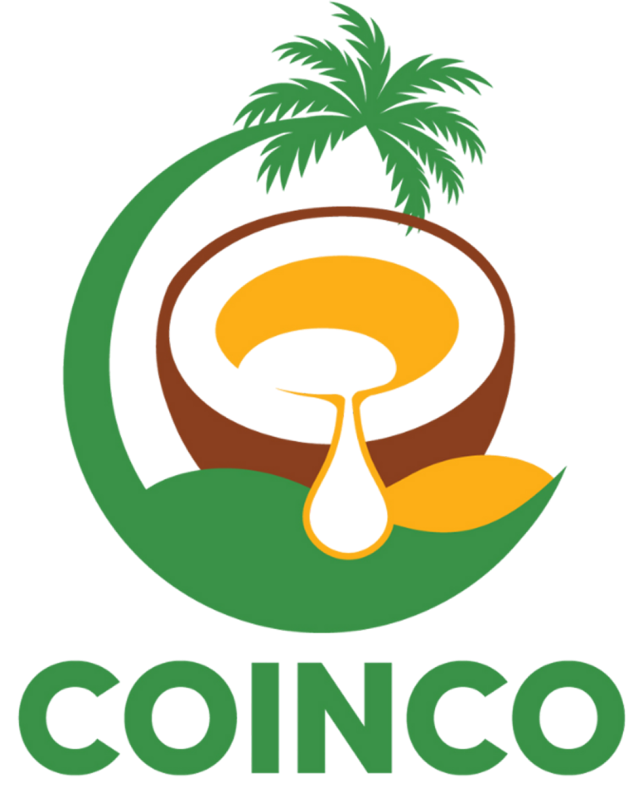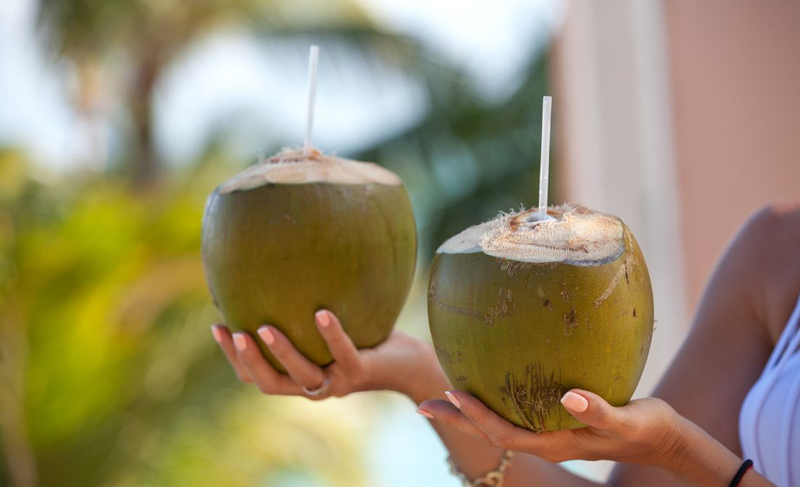News
Nutritional Value and Health Benefits of Coconuts
Coconut trees have long been familiar to the daily lives of Vietnamese people. Coconut trees are used in many different ways, but the most common is still harvesting the fruit. Coconuts are used to quench thirst and prepare food. Many people also consider them a natural “panacea”. Learn about the nutritional composition and health benefits of coconuts, and you will understand why this fruit is so highly valued.
Popular coconut varieties in Vietnam
Coconut is a tropical tree, found all over the world. In Vietnam, coconut is not only a part of culinary culture but also brings great economic value. From coconut water, coconut meat, coconut oil, to coconut shell and coconut fiber, all have wide applications in life. Popular types of coconut in Vietnam include:
- Young coconut is a popular type of coconut, especially in the southern provinces. There are many different types of young coconut, such as green young coconut, red young coconut and dwarf young coconut. The special feature of young coconut is that the water is sweet, contains a lot of electrolytes and is low in calories.
- Coconuts are commonly grown in coastal areas. They have thick flesh and are high in healthy fats. Coconut flesh is used to make cooking ingredients or coconut milk.
- Strawberry coconut, with its sweet water and thin coconut meat, is often used for drinking and making soft drinks.
- Wax coconut is a rare type of coconut with soft, fatty flesh, natural sweetness and rich in energy. Wax coconut also has high nutritional value, containing many proteins, vitamins and minerals.
- Pineapple coconut is a special type of coconut, with sweet coconut water and the characteristic aroma of pineapple. Not only attractive in terms of flavor, pineapple coconut also contains quite high vitamin C content.
- The Malay coconut is mainly grown in the Mekong Delta provinces, especially in Tien Giang and Ben Tre. This type of coconut can be used for many different purposes, from soft drinks, coconut milk to traditional dishes.
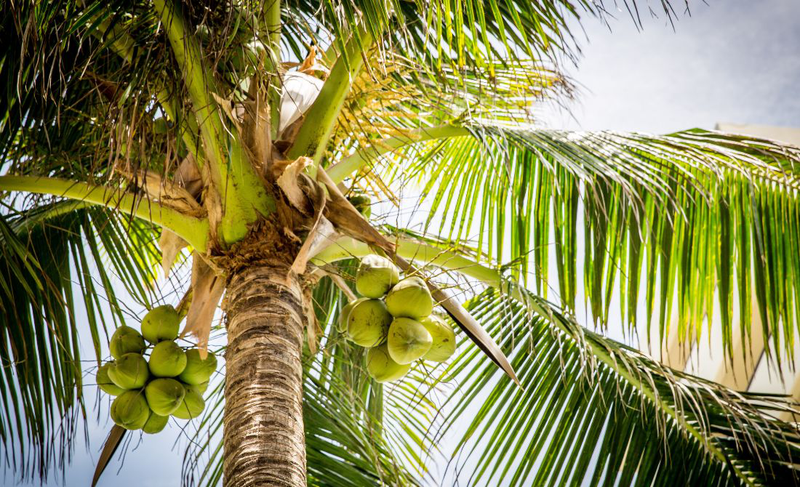
Outstanding nutritional composition of coconuts
Each type of coconut will contain different nutritional content. However, they all provide some basic nutrients that are beneficial to the body.
Nutritional composition of coconut water and coconut rice
Nutritional composition of 100g coconut water:
- Energy: About 19 – 24 calories;
- Water: 94% (helps provide moisture and rehydrate the body);
- Fat: < 0.5g;
- Carbohydrates: About 4.4g (mainly natural sugars such as glucose, fructose);
- Fiber: < 0.5g;
- Protein: 0.2g;
- Potassium: 250 – 300mg (helps maintain electrolyte balance);
- Magnesium: 60mg (supports muscle and nerve function)
- Sodium: 30mg (helps balance electrolytes);
- Vitamin C: About 3 – 5mg (provides antioxidants, boosts immunity);
- Canxi: 24mg.
Nutritional composition of 100g coconut rice:
- Energy: About 354 calories;
- Fat: 33.5g (mostly saturated fats such as lauric acid, capric acid);
- Carbohydrates: 15g (mainly starch and sugar);
- Fiber: 9g (helps improve digestion);
- Protein: 3.3g;
- Potassium: 356mg (helps maintain stable blood pressure);
- Magnesium: 90mg (supports muscles and nerves);
- Natri: 20mg;
- Vitamin C: 3mg;
- Canxi: 10mg.

Compare the differences in nutritional composition of coconut varieties
- Coconut water is characterized by its high water content, making it an excellent choice for quenching thirst, rehydrating, and replenishing electrolytes. Coconut water is also low in calories and fat-free, effectively quenching thirst without increasing body fat.
- Coconut has thick flesh, rich in healthy fats such as lauric acid. This is an ideal choice for coconut dishes such as coconut milk, coconut cream, coconut sticky rice, coconut sweet soup, etc.
- Strawberry coconut has sweet coconut water, less fat than other types of coconut. The coconut meat is thin, mainly used for drinking. This is a great choice for those looking for a sweet and healthy drink without worrying about gaining weight.
- Wax coconut is a type of coconut with soft, fatty and energy-rich flesh. This type of coconut is especially suitable for those who need to provide quick energy and healthy fats for the body, such as athletes or people who need to increase their physical strength.
- Pineapple coconut has sweet and cool coconut water, thin flesh, not fatty but contains a large amount of antioxidants. This type of coconut is especially useful in maintaining healthy skin and anti-aging.
What health benefits do coconuts bring?
From fresh coconut water to coconut meat, all are packed with vital nutrients. With their rich nutritional profile, coconuts offer a myriad of health benefits.
Coconuts help quench thirst and rehydrate
Fresh coconut water is an ideal thirst-quenching drink, especially in the summer. According to research, coconut water is naturally high in electrolytes, including potassium, sodium, and magnesium. It is a great choice for those who are active in sports, after strenuous exercise, or need to recover from dehydration due to fever. A study by Harvard University showed that coconut water can replace electrolyte solutions in maintaining the body’s water balance.
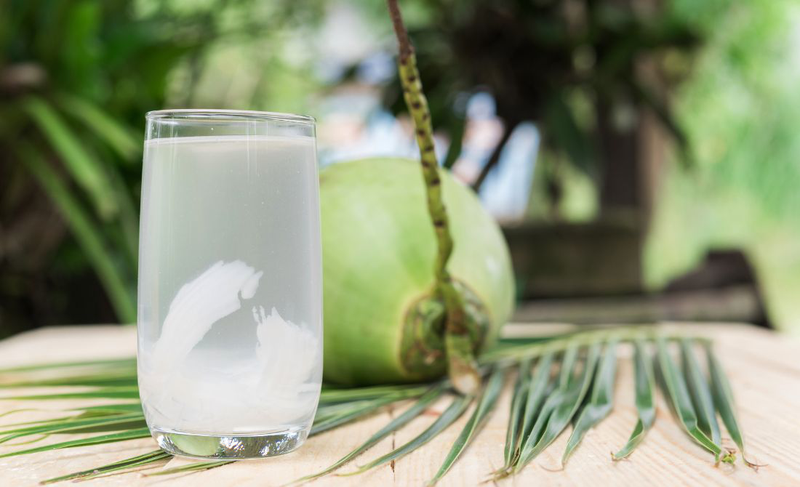
Improve cardiovascular health
The fats in coconuts are mainly medium-chain fatty acids (MCTs), such as lauric acid. These fats have been shown to have positive effects on heart health, helping to lower bad cholesterol (LDL) levels and increase good cholesterol (HDL). Additionally, the potassium in coconut water helps regulate blood pressure, which helps prevent common heart diseases. Studies have shown that adding coconut oil to your diet can help reduce the risk of heart disease.
Supports digestion
Coconut meat is a natural source of fiber, which helps improve digestive function. Fiber not only aids in bowel movements but also helps reduce bloating and indigestion. Coconut water also has a soothing effect on the stomach, helping to reduce the symptoms of stomach ulcers or indigestion.
Boost immune system
Coconut oil contains lauric acid, a compound with antibacterial, antiviral, and antifungal properties. Scientific studies have shown that lauric acid can help the body fight harmful bacteria and boost immunity. This helps increase the body’s ability to protect itself, especially during epidemics or when the body needs to recover from an infection.
In addition to the above uses, coconut oil is also used to nourish the skin and hair. Coconut water is also used in many medicinal remedies such as: Remedy for treating gastric reflux with coconut water, treating gout with coconut water, etc.
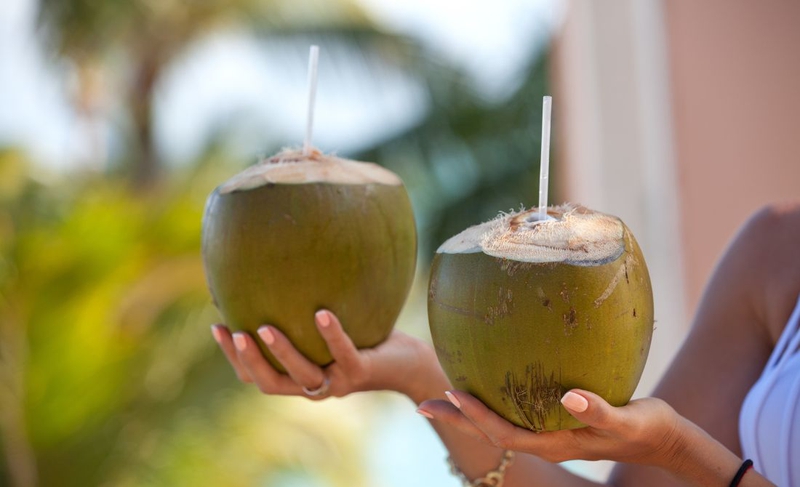
Coconuts are like a nutritional “treasure” that nature has given to humans. Fortunately, in our country there are many types of coconuts and this fruit is very popular and cheap. However, to maximize the value of coconuts, you should choose the type of coconut that suits your needs and use it properly.



